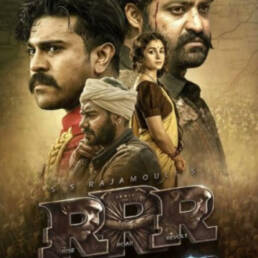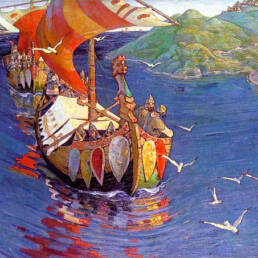On national sports day, we look back at the story of an unusual king – a great patron of cricket – who unlike his brethren, used the most of English sports as a means to promote the sense of nationalistic pride.
In the colonial period, patronization of English sports – especially cricket – had become a favourite pastime of the Indian royalty. For Indian rulers, it was a great way to curry favour with their English masters.
However, at the eastern end of the subcontinent, in what is present day Bangladesh, lay the small principality of Natore whose ruler proved a rare exception to this phenomenon.
In the early years of the 20th century, this king – Maharaja Jagadindra Nath Roy Bahadur – paved a different script. Jagadindra Nath, like many other royals of the time, had fallen in love with the game of cricket.
But rather unusually for an Indian royal of the time, Jagadindra Roy was also a great believer in Indian nationalism and was deeply influenced by Rastraguru Surendranath Banerjee.
For him, the game of cricket became a means of creating a sense of equality between the colonial rulers and their Indian subjects. Besides being a big patron of the sport, Jagadindra Roy also formed his own cricket team – Natore XI.

It was his life’s dream to see his team defeat the all English Calcutta Cricket Club in a cricketing contest. The other great benefactor of the game in Bengal then was the Maharaja of Cooch Behar who maintained a team as well.
But unlike Cooch Behar, Jagadindra Roy used to have only Indian players in his team. And it is with an all Indian XI that he wanted to smash the arrogance of Calcutta Cricket Club.
Jagadindra Roy decided to put together his own band of Galacticos – some of the best Indian cricketers from across the country under the banner of Natore XI – to take on Calcutta Cricket Club.
Among the luminaries assembled were fast bowler HL Sempre from Karachi, wicket-keeper K Sesachari from Madras and Kekhasru Mistry and the legendary Palwankar brothers – Baloo & Shivram from western India.
In a contest played at the Eden Gardens, his star-studded lineup finally fulfilled Jagadindra Roy’s dream – as Natore XI thrashed the Calcutta Cricket Club, breaking their stranglehold on the bragging rights.
Another subplot of equality also silently played out during this match. The two men who did the starturn for Natore were left-arm spinner Palwankar Baloo and keeper Sheshachari.
One of the men: Baloo, was a Dalit who belonged to the untouchable ‘chamar’ caste. The other, Shesachari, was a Brahmin from the high ranked Iyengar clan. In early 20th century India, it was unimaginable for the two to intermingle.
Yet that day at the Eden Gardens, sports performed it’s great levelling act as the combined forces of Baloo and Sheshachari spelt doom for Calcutta Cricket Club – and humanity won above all.
The match may have been a little more than an exhibition tie but it was contested most fiercely. The captain of Calcutta Cricket Club, Major White, clearly did not like the outcome.
His frustration came out in the post match tea party when he sarcastically asked Jagadindra Roy how many professionals he had in his team.
Calmly, the king replied “(only) Myself as I have nothing else to do but play cricket. All the other players are my invitees, who out of love for cricket, honour me by playing for my team.”
That day, Maharaja Jagadindra Roy won not just at the game of cricket but also at the battle of words.
Source(s):
A Corner of a Foreign Field: The Indian History of a British Sport – Ramachandra Guha
Eden Gardens – Legend & Romance – Raju Mukherji
https://www.cricketsoccer.com/2018/10/08/bangladesh-natore-and-its-relation-to-cricket/




